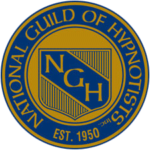 Contrary to its common reputation as a purely intellectual form of therapy, this approach emphasizes not only the concepts of freedom and responsibility, but experiential reflection, in which clients experience their problems in session through a process of checking in with their affective and bodily sensations. The goal of this therapy is to help clients free themselves from self-imposed limitations and come to a deeper understanding of their authentic life goals, versus those imposed by others or by a rigid sense of self. This approach, which is becoming increasingly integrative, is applicable in a wide array of settings and diagnostic populations and, because of its emphasis on key contextual factors, is increasingly influential on the therapeutic profession as a whole.
Contrary to its common reputation as a purely intellectual form of therapy, this approach emphasizes not only the concepts of freedom and responsibility, but experiential reflection, in which clients experience their problems in session through a process of checking in with their affective and bodily sensations. The goal of this therapy is to help clients free themselves from self-imposed limitations and come to a deeper understanding of their authentic life goals, versus those imposed by others or by a rigid sense of self. This approach, which is becoming increasingly integrative, is applicable in a wide array of settings and diagnostic populations and, because of its emphasis on key contextual factors, is increasingly influential on the therapeutic profession as a whole.
Source: https://www.apa.org/pubs/books/4317193.aspx
Humanistic psychology, a movement in psychology that was created in opposition to the two mainstream 20th-century trends in psychology, behaviourism and psychoanalysis. It is based on the belief that humans, as individuals, are unique beings and should be recognized and treated as such.
Humanistic and existential psychotherapies use a wide range of approaches to case conceptualization, therapeutic goals, intervention strategies, and research methodologies. They are united by an emphasis on understanding human experience and a focus on the client rather than the symptom.
Interventions are aimed at increasing client self-awareness and self-understanding.
The major themes for humanistic therapy are acceptance and growth. The major themes of existential therapy are client responsibility and freedom. Many of the characteristics of these therapies have been incorporated into other therapeutic approaches such as narrative therapy.
Humanistic and existential approaches share a belief that people have the capacity for self-awareness and choice. However, the two schools come to this belief through different theories. The humanistic perspective views human nature as basically good, with an inherent potential to maintain healthy, meaningful relationships and to make choices that are in the interest of oneself and others. The humanistic therapist focuses on helping people free themselves from disabling assumptions and attitudes so they can live fuller lives. The therapist emphasizes growth and self-actualization rather than curing diseases or alleviating disorders. This perspective targets present conscious processes rather than unconscious processes and past causes, but like the existential approach, it holds that people have an inherent capacity for responsible self-direction. For the humanistic therapist, not being one’s true self is the source of problems. The therapeutic relationship serves as a vehicle or context in which the process of psychological growth is fostered. The humanistic therapist tries to create a therapeutic relationship that is warm and accepting and that trusts that the client’s inner drive is to actualize in a healthy direction.
The existentialist, on the other hand, is more interested in helping the client find philosophical meaning in the face of anxiety by choosing to think and act authentically and responsibly. According to existential therapy, the central problems people face are embedded in anxiety over loneliness, isolation, despair, and, ultimately, death. Creativity, love, authenticity, and free will are recognized as potential avenues toward transformation, enabling people to live meaningful lives in the face of uncertainty and suffering. Everyone suffers losses (e.g., friends die, relationships end), and these losses cause anxiety because they are reminders of human limitations and inevitable death. The existential therapist recognizes that human influence is shaped by biology, culture, and luck. Existential therapy assumes the belief that people’s problems come from not exercising choice and judgment enough–or well enough–to forge meaning in their lives, and that each individual is responsible for making meaning out of life. Outside forces, however, may contribute to the individual’s limited ability to exercise choice and live a meaningful life. For the existential therapist, life is much more of a confrontation with negative internal forces than it is for the humanistic therapist.
In general, brief therapy demands the rapid formation of a therapeutic alliance compared with long-term treatment modalities. These therapies address factors shaping substance abuse disorders, such as lack of meaning in one’s life, fear of death or failure, alienation from others, and spiritual emptiness. Humanistic and existential therapies penetrate at a deeper level to issues related to substance abuse disorders, often serving as a catalyst for seeking alternatives to substances to fill the void the client is experiencing. The counselor’s empathy and acceptance, as well as the insight gained by the client, contribute to the client’s recovery by providing opportunities for her to make new existential choices, beginning with an informed decision to use or abstain from substances. These therapies can add for the client a dimension of self-respect, self-motivation, and self-growth that will better facilitate his treatment. Humanistic and existential therapeutic approaches may be particularly appropriate for short-term substance abuse treatment because they tend to facilitate therapeutic rapport, increase self-awareness, focus on potential inner resources, and establish the client as the person responsible for recovery. Thus, clients may be more likely to see beyond the limitations of short-term treatment and envision recovery as a lifelong process of working to reach their full potential.
Source: https://www.ncbi.nlm.nih.gov/books/NBK64939/
Read more on existential psychology here:
https://www.goodtherapy.org/learn-about-therapy/types/existential-psychotherapy
Read more on humanistic psychology here:
https://www.goodtherapy.org/learn-about-therapy/types/humanistic-psychology







